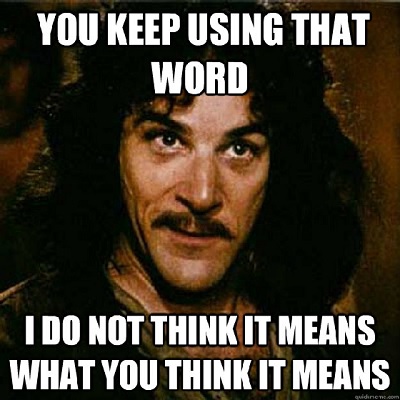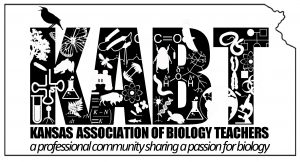Is “Theory” Jargon?

In my introductory Biology 1 classes, I go out of my way to avoid using too much jargon (AKA words which have a different meaning and significance to a particular group or profession). For the 14- and 15-year old students I interact with, it tends to get in the way of communication and understanding. This is not to say that I avoid scientific vocabulary, I just try to have a diverse array of anecdotes and explanations ready to explain the meaning/purpose of the terms that I am using in class. There are a few words, however, which the improper use of has long been a thorn in the side of many a biologist. Chief amongst those terms may be “theory”.
To a scientist, a theory is an almost sacred idea. It represents the complete, current, and peer-reviewed body of knowledge on a given concept. It is a set of assumptions, observations and inferences that have been tested repeatedly, and by a diverse set of researchers. And it is as close to the f-word (… fact… but don’t use that word here) as you are going to get in the natural sciences. Theories are grandiose, predictive, and as universal in their scope as possible. To say it modestly, theories are kind of a big deal.
But if you were to go into a high school science class in August or September, you would hear some slanderous things said about the word theory. “Educated guess”, “guesstimate”, and “it’s just a theory” are some of the most common slurs directed the way of the noble theory. And it isn’t limited to school children. Watch any network television show, listen to any local radio DJ, and all of them will espouse “theories” about why a certain person is popular, or what the meaning behind a certain movie or song really is.
I may have recently reached my tipping point. I listen to a series of podcasts called the “B.S. Report”, hosted by Bill Simmons of ESPN/Grantland, which was recently recognized as among the most popular sports and entertainment programming available in the iTunes app store. The reach of this show is measured in the hundreds-of-thousands. It’s a fun show, the guests are funny, and it allows me to follow sports without actually committing the 100 hours/week it would take to keep up with the interests of my students. And on every episode, the host, Bill Simmons, offers up a theory trying to explain something in the realm sports. There was a recent podcast discussing conspiracy theories (**shudder**) surrounding the NFL, that I almost couldn’t stand to listen to. Every time I would hear the word “theory” come through my speakers, I wanted to shout, “Hypothesis! HYPOTHESIS! You are talking about a testable prediction based on personal background knowledge! You’re not ‘making’ a theory!!” at my cellphone. No matter how many emails I draft, or corrective tweets I post, there is no changing the meaning of that word in his mind. And worst yet, I might be one of only a handful of listeners that cares that the word theory is being misused so blatantly and repeatedly.
So I ask, five hundred and twenty words later, is “theory” worth the fight? I’d argue that it is, but the effort to change the public perception back toward the more noble definition of theory would be daunting, time-consuming, and may prove fruitless. I fear the word theory is going the way of the Oxford Comma, and this saddens me deeply.
What do you think? What terms and words are sacred in your classes, and which could you do without? Post in the comments or on the KABT Facebook group to keep the conversation going!

This guy argues for using “model” in replacement of hypothesis, theory, and law. Could be an interesting transition to NGSS and their use of models. I agree that if the word is used commonly by the public it’s hard and a possibly irrelevant fight for scientists to argue semantics. Similar to using climate change now instead of global warming because the old word was misunderstood.
http://www.wired.com/2013/03/three-science-words-we-should-stop-using/
I worry that if we continue to compromise, we’ll either become out of touch with our content area or we’ll lose the rigor with the average biology student who will go on to become (best case scenario) a parent of one of our future students or (worst case scenario) a policy-maker that doesn’t understand the intrinicies of the difference between an “it’s a wild guess, 1.21 gigawatts” theory and a “based on literal mounds of independent evidence and not a stab in the dark” theory. But, alas, it may not be the hill to die on. Hopefully a full NGSS/CCSS curriculum has the students completing enough science performances that the concept is engrained well before high school, eh?
I feel your pain and agree on pretty much every point. Your question is a good one, and I’m not sure the specific word is worth the fight. Traditional scientists would argue that the term has a colloquial and technical definition, but the two are directly at odds and hamper our ability to communicate science without promoting misconception. It hurts to bow to the ignorance of the masses, but language is defined by usage… so perhaps it’s time to replace the term. Perhaps we could co-opt “theorem” from the mathematicians?